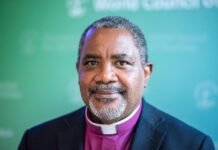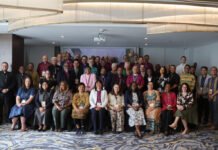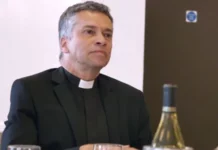The House met on Zoom and began the meeting with an update on Ukraine, a review of current developments and the ongoing humanitarian and refugee crisis . The House took note of several the initiatives already underway on a national and international level and invited all to pray for those in Ukraine effected by the ongoing situation.
The House was then given an update on the financial situation in dioceses. The discussion included an assessment of the current and future inflationary environment and discussed possible mitigation opportunities for those affected.
The House then then turned its attention to Bishops and their ministries. Phase One of the most recent consultation was discussed with a summary of the context and key themes that emerged from the conclusion of this phase of the consultation. This was followed by a presentation by the Chair of the Diocese Commissions on the proposed Phase Two of the consultation. The House also reviewed proposals to join up the work of the Diocese Commission and the Transforming Effectiveness work stream to facilitate diocesan collaboration and develop more shared services.
The House then had a substantive discussion on proposed changes to the membership of the Crown Nominations Commission for the See of Canterbury. A full range of views were expressed on potential changes and will be submitted to the Consultation as a formal response from the House of Bishops.
The House was then given an update on the reform of the Clergy Discipline Measure with the House invited to take note and make comments and suggestions in preparation of the final report that will come to the House in May.
The House then turned its attention to Living in Love and Faith (LLF) related matters.
The House agreed to the plan for bishops’ engagement with LLF in 2022 and the proposal for LLF engagement at the July Synod in 2022.
The House also agreed to a proposal where members of the LLF Reference Group will accompany the bishops during parts of the College of Bishops meetings in the autumn of 2022. Their role will be to enrich the discussions by offering perspectives from outside the episcopal arena, ensure that the insights and sensibilities of diverse lived experiences and convictions are embedded in the discernment process, and act as a diverse sounding board.
The House also agreed to the formation of a Pastoral Consultative Group to support and advise dioceses on pastoral responses to circumstances that arise concerning LGBTI+ clergy, ordinands, lay leaders and the lay people in their care. The group will comprise a small group of bishops working together with external advisors who bring subject expertise as well as pastoral and lived experience.
The House then reviewed attempts to explore questions of gender identity and transition and agreed to seek and commission an appropriate group to take this work forward.
The meeting closed in prayer.



